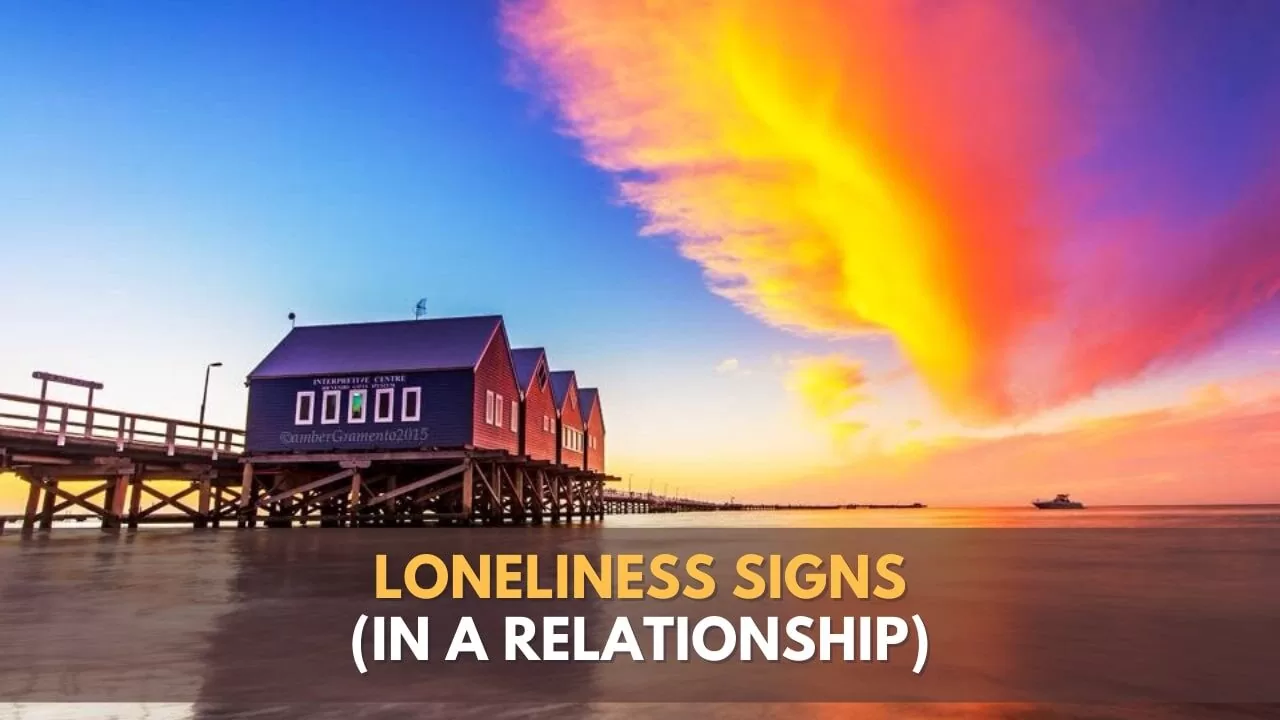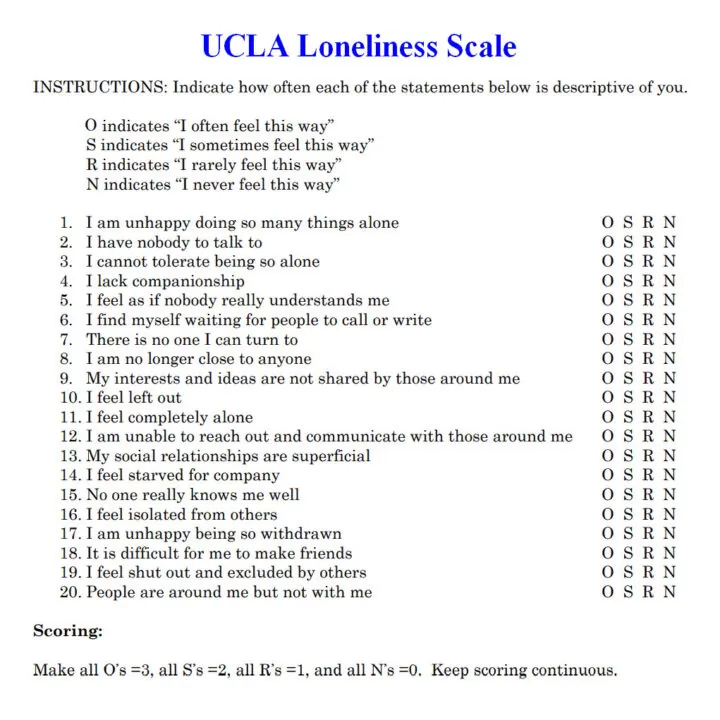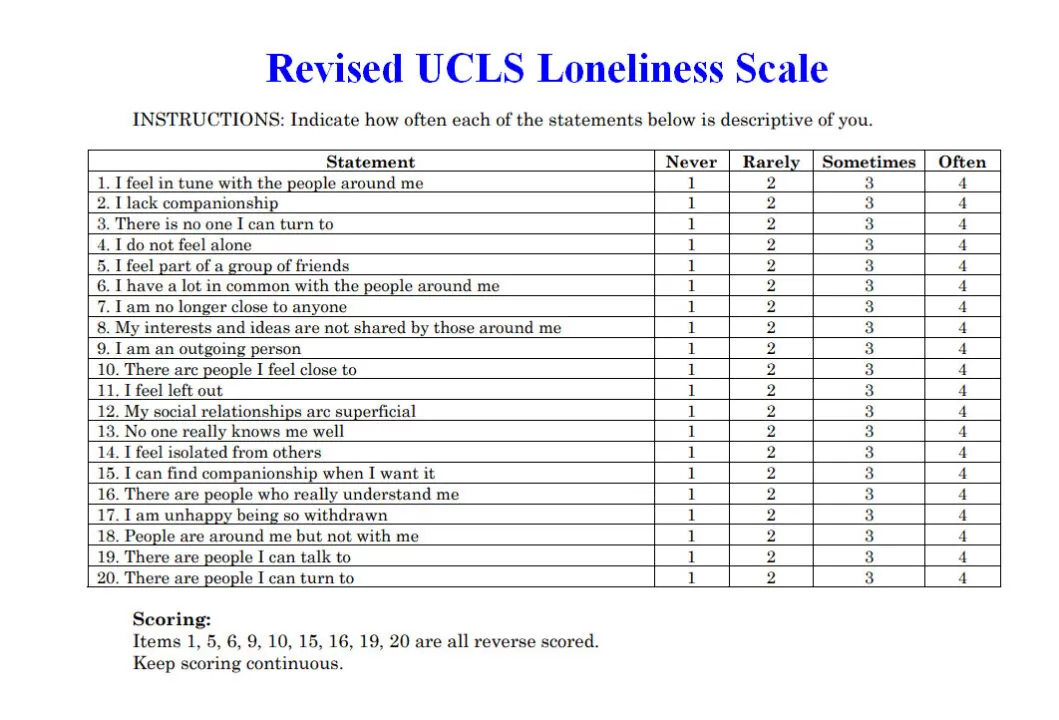— Researched and written by Dr. Sandip Roy.
We are a species that survives and thrives because we are socially connected. Our ability to bond with others and build a sense of belonging are keys to our happiness, health, and meaning in life.
But loneliness can make us more likely to fall ill, including a 29% greater risk of heart disease and a 32% higher risk of stroke. It can even double the risk of dying early.
Loneliness is similar to hunger in the sense that you can be surrounded by food and still be hungry if none of it is edible to you.
“Perhaps, far worse than being in a relationship is being lonely in a relationship, listening to one-word replies when expecting conversations.”
Table of Contents
The Signs of Loneliness
Loneliness is a common experience; up to 80% of people under the age of 18, and 40% of adults over the age of 65, report feeling lonely at least sometimes (Berguno et al., 2004).
Loneliness serves an evolutionary purpose. Loneliness motivates us to connect or reconnect with others, thereby reducing or eliminating feelings of social isolation. For our ancestors, the commonly felt situations of loneliness occurred following geographic relocation or bereavement.
“Loneliness has a purpose—it nudges us to connect or reconnect with others.”

Here are some signs to find out if you are feeling lonely, even when you are in a relationship:
1. You feel alone and desolate, as if deserted on an island.
Loneliness is a state of perceived social isolation. Lonely people feel socially isolated even when they are not. This comes from their lack of a sense of belonging and meaningful connection to others around them.
They are also partly to be blamed for their own social isolation.
Lonely people start to focus more on their negative social interactions and expect more negative social behavior from others. These negative social expectations then trigger others to behave just as they are expected to.
This forms a self-fulfilling prophecy loop, in which the lonely people withdraw from others and blame them for their coldness and aloofness. Others, meanwhile, distance themselves from them, assuming they don’t want any company.
2. You feel unsafe and unsure of social support in times of need.
Lonely people are painfully aware that they have only themselves to take care of and look out for them, and therefore, they must be on high alert for lurking dangers.
Loneliness comes with feelings of being unsafe. It sets off a sense of hypervigilance in the lonely people and makes them see the world as a more threatening place.
Hypervigilance is a state of enhanced sensory sensitivity marked by an exaggerated keenness to scan the environment for threats.
Hypervigilant people are constantly on high alert, searching their environment for sights, sounds, smells, people, or anything abnormal that can cause trauma. Hypervigilance has been linked to anxiety, high responsiveness, exhaustion, and obsessive patterns of behavior.
Loneliness can negatively affect a person’s mental health by making them feel unsafe and disconnected from their environment and society.
The lonely people crave human contact but are unable to achieve it.
3. You feel high stress and anxiety, without any obvious cause.
Experts link loneliness to anxiety. Loneliness can cause anxiety or be caused by already-present anxiety. Often, loneliness turns into a fear of loneliness, also called autophobia.
Even when exposed to the same stressors as non-lonely people and even while relaxing, lonely people report higher levels of experienced stress.
Because the social interactions that lonely people have are not as beneficial as those of other people, the relationships they have, do not protect them from stress in the same way that partnerships ordinarily do.
Loneliness increases the levels of circulating stress hormones and blood pressure. It contracts the blood vessels, causing the heart muscle to work harder and the blood vessel walls to be damaged by blood flow turbulence.
4. You feel tired and sleepy all through the day.
Sleep offers both physical and mental restoration. Non-restorative sleep is non-refreshing, pointing to a low sleep quality despite normal sleep duration. It causes mental fatigue and cognitive and memory problems.
Loneliness heightens vulnerability and unconscious feelings of watchfulness for social threats. These stop a lonely person from having proper, sound sleep.
Lonely people report poor sleep and daytime sleepiness. Their polysomnography (sleep study) tests reveal multiple micro-awakenings causing fractured sleep.
5. You have increased your involvement with technology.
According to one study, people who spend excessive time on social media also experience symptoms of social isolation. Participants who spent 2+ hours a day on social media were twice as likely to feel lonely as compared to those who spent 30 minutes or less on those platforms.
Remember, technology does not reduce loneliness.
Those who replace online relationships with real relationships do not feel a decrease in loneliness. They may even experience a worsening of their loneliness.
In comparison, those who use online interactions to complement their face-to-face relationships fare better.
6. You have started to spend a lot of time binge-watching.
A research team from the University of Texas discovered that the more lonely and unhappy the study participants were, the more likely they were to binge-watch TV. This was their strategy to distract themselves from unpleasant thoughts (Sung, Kang, & Lee, 2015).
The data also revealed that people who lacked self-control were more prone to binge-watch. Even though they were aware that they had other chores to perform, these viewers couldn’t stop clicking “Next.”
7. You feel your confidence and self-esteem have come down.
When people feel lonely, they may also feel like they don’t belong to supportive groups or caring relationships, which can lead to lower self-esteem. Self-esteem is how we feel about ourselves and our value in relation to others.
Feeling lonely can make people feel less confident and good about themselves.
Research has shown that loneliness and low self-esteem are connected, and that feeling lonely can make people feel less good about themselves.
This study found that adolescents with low self-esteem are more likely to feel lonely, and that loneliness can lead to stress and impact the body’s immune system. This means that feeling lonely can affect how we feel about ourselves and our overall well-being.
8. Your depression signs have aggravated.
Loneliness and depression are two clearly distinct constructs, though they may occur together.
Research finds that neither of them is a direct cause of the other, although they most likely share some common origins, like childhood stress (Weeks, Michela, Peplau, & Bragg, 1980)
Measuring Loneliness: Self-assessment Test For Loneliness
According to British Red Cross research in 2016 – 9 billion adults of all ages and backgrounds are often lonely.
Loneliness is typically measured by asking individuals to respond to items such as those on the frequently used UCLA Loneliness Scale.
Researchers Ferguson, Russell, and Peplau developed the UCLA Loneliness Scale to measure the level of loneliness in adults. This test, originally released in 1978, consists of 20 questions designed to measure one’s subjective feelings of loneliness as well as feelings of social isolation.
Each item is rated by participants as O (“I frequently feel this way”), S (“I sometimes feel this way”), R (“I rarely feel this way”), or N (“I never feel this way”).

A revised version of the test (R-UCLA) by Russell, Peplau, & Cutrona came out in 1980 in which respondents were asked to rate each item from one of four choices: ‘Never’, ‘Rarely’, ‘Sometimes’ or ‘Often’. This article by NBC News BETTER suggests that people with R-UCLA score of 44 and more can be considered “officially lonely”.

Loneliness vs. Being Alone: Differences
Loneliness is a distressing emotion linked to the belief that one’s social connections do not meet their social needs. It is a state of mind. Being alone is a state of being physically alone, without people around, which can be caused by personal preference, forced solitude, or social rejection. It is a state of physical isolation.
We feel lonely when we perceive our social needs remain unfulfilled, either by the quantity or, more importantly, the quality, of our relationships. It is a negative mood marked by sadness and emptiness.
Loneliness is synonymous with perceived social isolation, not with objective social isolation (Hawkley & Cacioppo, 2010). It is a sense of estrangement from others caused essentially by the poor quality of one’s social relationships.
People can live relatively solitary lives and not feel lonely, or they can live an outwardly rich social life and still feel lonely inside. All the same, loneliness can also result from physical isolation, social isolation, or both.
Each of us can feel lonely:
- A person who is physically alone, as in forced solitude, could easily give in to loneliness, and feel sad, empty, and helpless.
- A person in a relationship or surrounded by other people can also feel lonely and have those feelings.
Can Loneliness Kill?
Loneliness can kill us earlier than otherwise, increasing our risk of early death by at least 26%.
Julianne Holt-Lunstad, a psychology professor at Brigham Young University, recently examined data from over 3.4 million research participants and presented testimony before the U. S. Senate Aging Committee.
The professor observed that social loneliness was as much of a risk factor for early death as smoking 15 cigarettes a day.
The study also found that loneliness was a greater health risk than lifestyle risk factors like obesity and lack of exercise (Holt-Lunstad, 2017).
Final Words
Loneliness is both a deeply personal and a pervasive social issue.
It reduces a person’s peace of mind by raising their vigilance for threats and elevating their feelings of vulnerability. A society with many lonely people may languish in terms of social cooperation and group activities that nurture wellbeing.
Many countries throughout the world today believe we are in the midst of a loneliness epidemic. The question now is what can be done about it.
√ Please share it with someone if you found this helpful.
√ Also Read: 7 Books On Loneliness, For Those Sadly Alone
• Our Story!